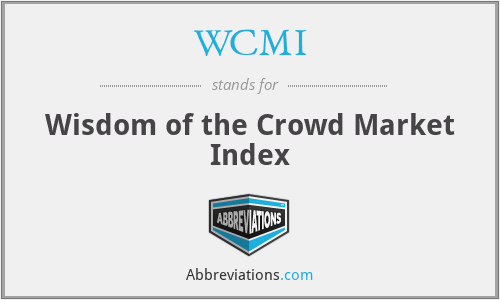In sports markets, the probabilities implied by the prices on offer are a proxy for the wisdom of the crowd for that particular event. By adapting Shannon's Entropy formula, we can generate our own "Wisdom Of Crowd Market Index" (WCMI) to represent this information on a scale from 0 - 1.
First, calculate implied probabilities of prices: x = 1.00 / d
(where d = decimal odds).
Next, calculate log probabilities: y = log(x, n)
(where n = number of runners).
Then, multiply probabilities by log probabilities: z = x * y.
Finally, sum products and subtract from one for final index:
wcmi = 1 - (-sum(z)).


Note that the index is at a minimum (0.00) when the market is completely uninformed about the outcome (all prices are the same) and at a maximum (1.00) when the market has closed (no price for winner and maximum price for all others). In the realistic exchange market above (snapshot of prices taken one minute before going in-play), the crowd is relatively uninformed (0.03) about the likely outcome and presents an excellent opportunity for the informed sports trader. Personally, I do not trade in any market with an index above 0.13 (approx).
It is very gratifying to note that FlatStats are now (29-Dec-2017) using our WCMI as a guide to those markets in which the crowd is less well-informed!

